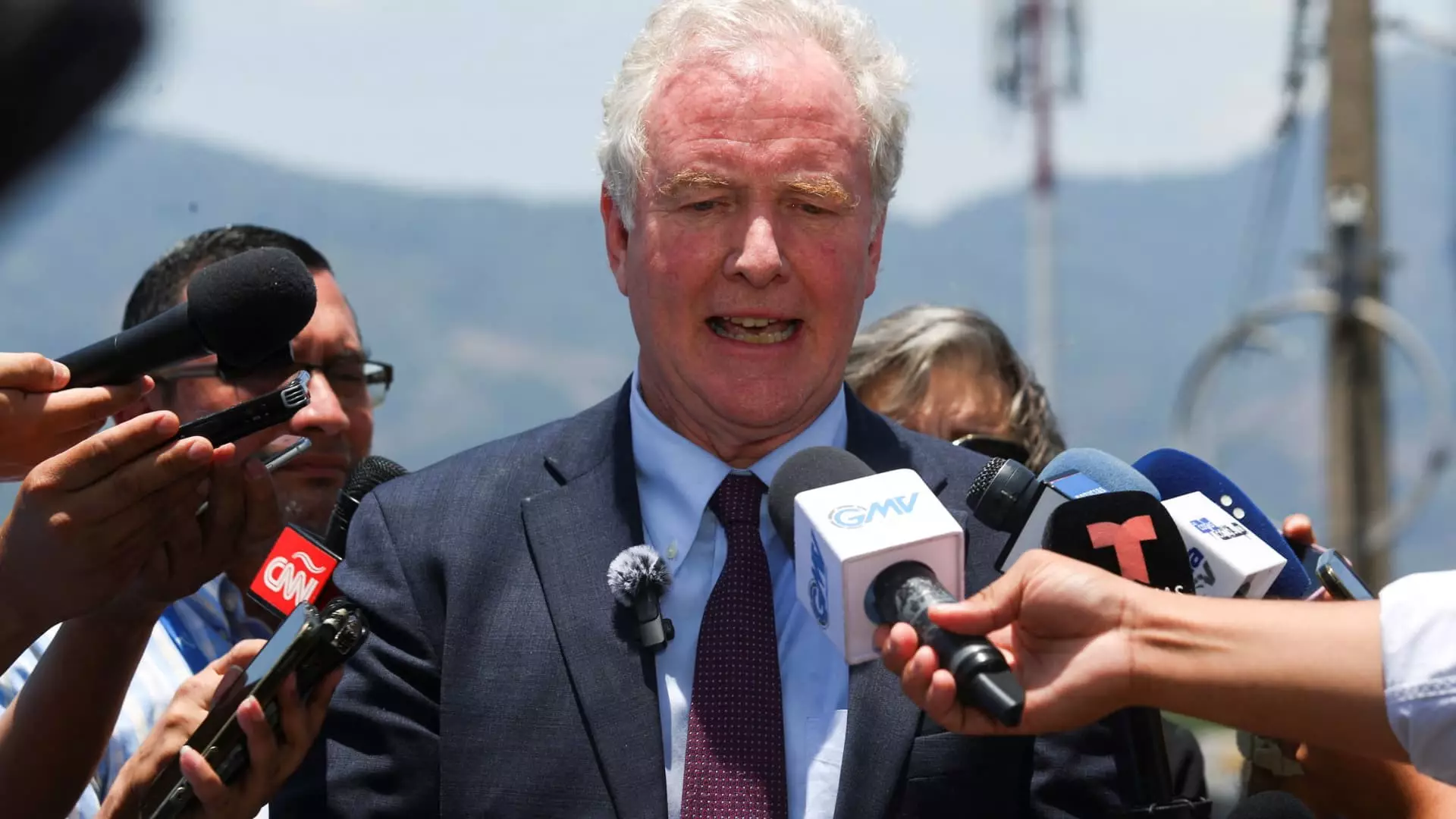The enduring saga of Kilmar Abrego Garcia serves as a glaring reminder of the U.S. immigration system’s tragic flaws. Maryland Senator Chris Van Hollen’s recent trip to El Salvador brings to light not only a legal battle but also a morally imperative mission that transcends borders and politics. The former Trump administration’s egregious mistake of deporting Abrego Garcia—contrary to a Supreme Court ruling meant to safeguard him—paints a haunting picture of a country’s failure to uphold justice and human dignity.
Van Hollen’s visit, characterized by personal interactions with Abrego Garcia and advocacy for his return, is emblematic of the government’s responsibility to rectify its missteps. At the heart of this endeavor lies a crucial issue: the deportation of an individual who, according to court rulings, should have been allowed to remain in the U.S. The senator’s commitment is commendable, yet it exposes a broader systemic failure—one that demands the urgent attention of both policymakers and citizens alike.
An Elected Official’s Challenge
Upon arrival in El Salvador, Van Hollen faced obstruction at almost every turn. His attempt to enter the prison—referred to as CECOT, a confinement center tied to terrorism—was thwarted by armed soldiers, who reportedly were instructed to block his access. This barrier raises not only questions about transparency and accountability within the Salvadoran government but also highlights the alarming extent of complicity between two nation-states that ought to be safeguarding human rights instead of undermining them.
Van Hollen’s frustration grew more palpable with each denial, whether it was for a mere phone call between Abrego Garcia and his wife—a stipulation he attempted to facilitate— or access to confirm his health status directly. This not only illustrates the existing rift between El Salvador and the United States but also underscores the profound alienation families suffer as a result of flawed immigration policies. Respect for human dignity should not be an afterthought; it should be foundational to any operating legal framework.
The Role of Leadership in Human Rights
As Van Hollen took to social media to share poignant updates, the images captured by Salvadoran President Nayib Bukele served as a bittersweet reminder of the treachery that often exists in political alliances. With Bukele resisting calls to right this wrong, one begins to wonder whether this situation is an outlier or if it is emblematic of broader trends in international relations where human rights are often relegated to secondary status behind diplomacy, economics, and power.
Moreover, the cadre of Maryland officials who have joined this fight—to demand verifiable proof of Abrego Garcia’s well-being—speaks volumes about moral leadership in politics. Their refusal to turn a blind eye should inspire both front-line activists and those who feel disillusioned by the political process to hold their leaders accountable.
It’s imperative that ordinary citizens refuse to accept narratives that normalize suffering and injustice. Political officials like Van Hollen need the backing of a constituent base willing to challenge the status quo. In an age increasingly characterized by populism and division, compassion in governance must remain a non-negotiable standard.
A Call to Action
This situation should incite collective outrage, urging us to demand a more humane approach to immigration and deportation. The injustices faced by individuals like Kilmar Abrego Garcia serve as a litmus test for our values as a nation and our willingness to fight systemic abuses. Human rights should not be contingent upon the political climate or diplomatic relations; they must be intrinsic to our identity.
As citizens, we can glean from Van Hollen’s tenacity and the voices of those in Abrego Garcia’s corner: to uplift the stories of individuals whose lives hang in the balance. The challenge lies not only in reforming laws but also in cultivating empathy, understanding, and action among our communities. The ethical imperative is clear—no one should be subjected to the shadowy corners of indifference and injustice. The injustice against Kilmar Abrego Garcia is not an isolated case; it is part of a much larger narrative that we can no longer ignore.


Leave a Reply